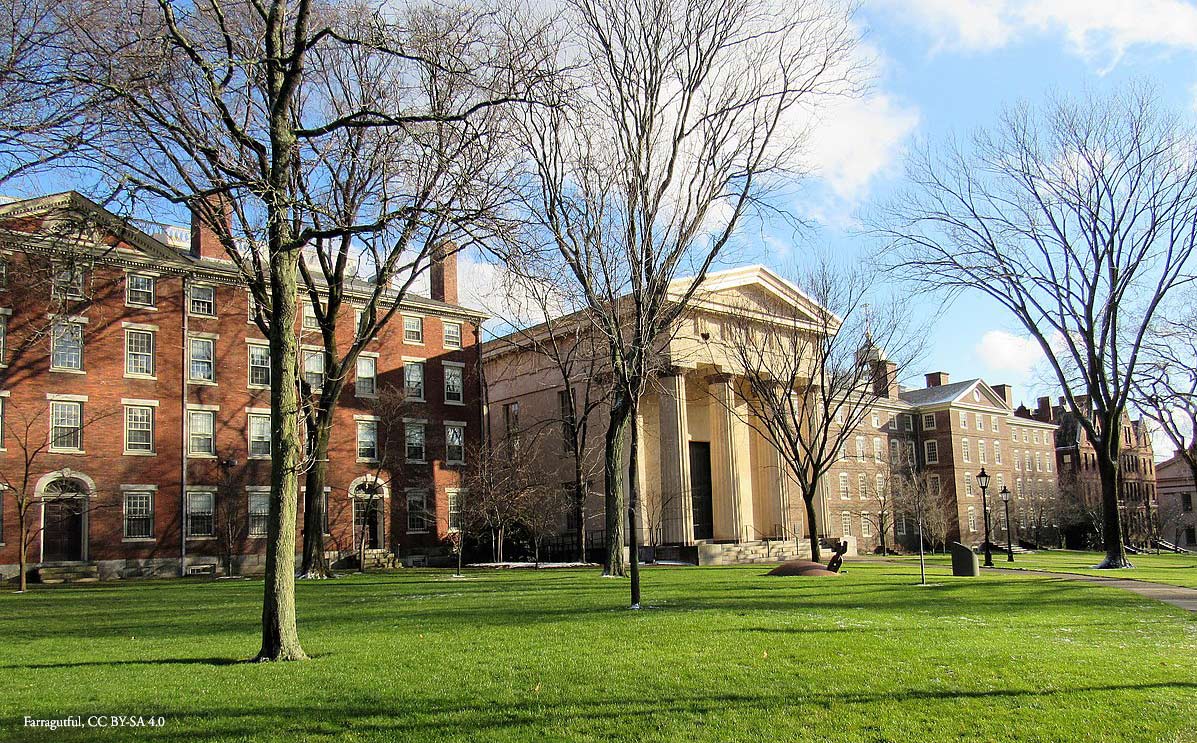A discipleship program and personal touches to Bible course bring students together across the globe
By Anne Kerhoulas, Staff Writer
The women of Christian Union Libertas at Brown University are using this season to dig deep. Although the current fall semester is very different than in previous years, with no freshmen on campus, no large group Leadership Lecture Series, and most students taking classes remotely, the women’s side of the ministry has found ways to deepen their connections with one another.

Ministry Fellow Laurel Copp realized that things would need to look different this semester in order to engage students well, so she took two of the Chrisitan Union foundations, Bible course, and discipleship, and reimagined them. While much is the same, a lot is different, as Copp believes this year can be one of substantial growth.
Teaching four virtual Bible courses on the Gospel of Mark, Copp has fostered an atmosphere of unity. Her creative ideas have ranged from small adjustments like creating Zoom backgrounds that match a theme they are studying in scripture to ordering Domino’s pizza to be delivered to every student in the course (including one student in Korea) so that they could all enjoy the same meal as if they were in a room at the Judson Center together. Creating connection between students has become a vital part of ministry this year since the typical connection points like eating in dining halls or studying together in the library are no longer available.
“As our students are dispersed around the country and world, we have found that small steps to create unity or a shared experience helps create a shared space to connect and interact more deeply virtually,” Copp says. “Having a shared or collective activity helps outset the zoom fatigue, helps them distinguish our time from impersonal class zoom, and helps create a more intimate and personable setting.”
Building on time in Bible courses, Copp has each student share personal prayer requests that connect to something they studied in the text. She then pairs up women to connect during the week to pray together and grow in their relationship. Creating these regular touch points has had a profound effect. The women even insisted on meeting during the week of midterms and fall break, which are weeks when Bibles courses are usually canceled.
Innovative Bible courses are just one facet of how Copp is developing deeper connections between Brown women. She has also revolutionized her one-on-one discipleship by creating a curriculum in which every woman participates. Historically, discipleship has been more personalized, rather than corporate. While this mentoring time is a critical time for one-on-one counseling and exhortation, Copp knew that in this distant and virtual climate, the women couldn’t afford to not be united in this area as well.
Copp set the standard high at the beginning of the semester by asking women to commit fully to the discipleship program, knowing that if they did, they would reap the benefits. With Bible course as a foundation, Copp has crafted a relevant and contextualized reading plan for the women, combining teaching on the basics of Christianity, like the attributes of God, with a reading from The Common Rule, a book about spiritual disciplines, and The Color of Compromise, a challenging read on racism in the church. Each week Copp covers one of God’s attributes like compassion or grace, connects God’s character to a spiritual practice or habit, and then helps students see how God’s character impacts how we treat other people, especially regarding racism.
Copp has seen immediate benefits to this model saying, “Before, discipleship was so scattered with everyone doing something different. Now women are doing the same thing in discipleship and interacting with one another with a shared background and connection point from what they are studying.”
With such a diverse group of women, both racially, politically, and even in spiritual depth, these challenging conversations have sparked the imaginations of participants to consider how their faith can land in practical ways. One student reflected that what she was learning totally reshaped how she thought about her time working in the White House during a summer internship. Regularly encountering protestors, she largely just kept on walking, but now she sees that she could have engaged with them, heard their opinions, and actually learned why they were protesting certain issues. For her, this discipleship program has recast how she thinks about loving her neighbor or even her enemy as she wants to grow in understanding other perspectives.
This kind of practical application of theology has been deeply encouraging to Copp as she sees spiritual growth happening before her eyes. “I have enjoyed seeing students engage what they are learning about God, practicing spiritual habits, and pursuing racial justice to their lives, classes, internships, and faith. It has been such a beautiful way for the integration of faith, life, and learning that I think will have ripple effects far into their faith journey.”



